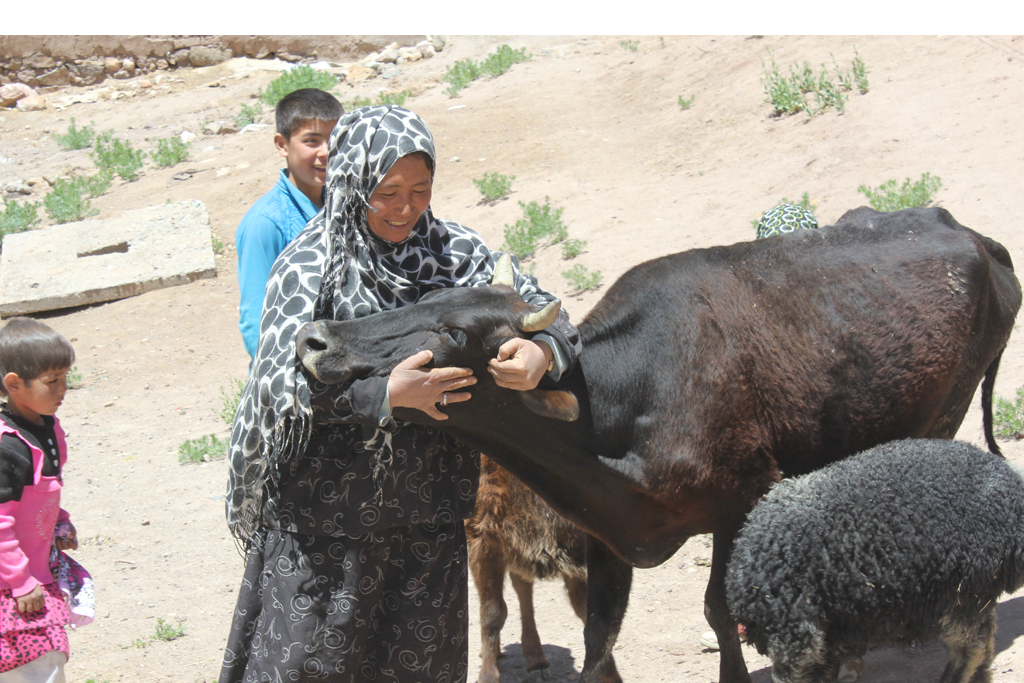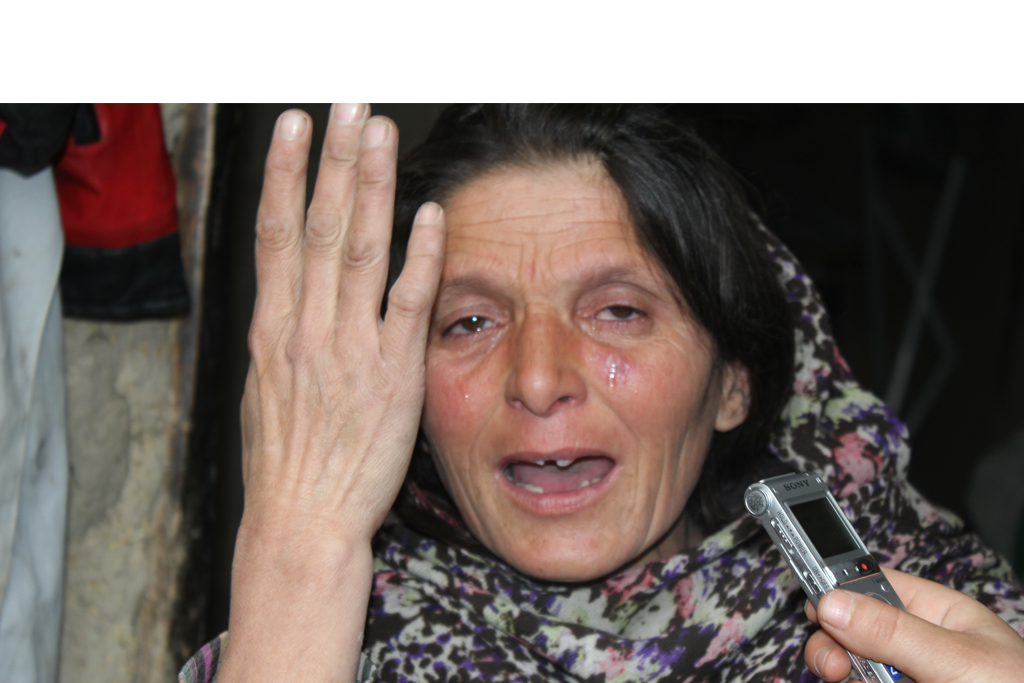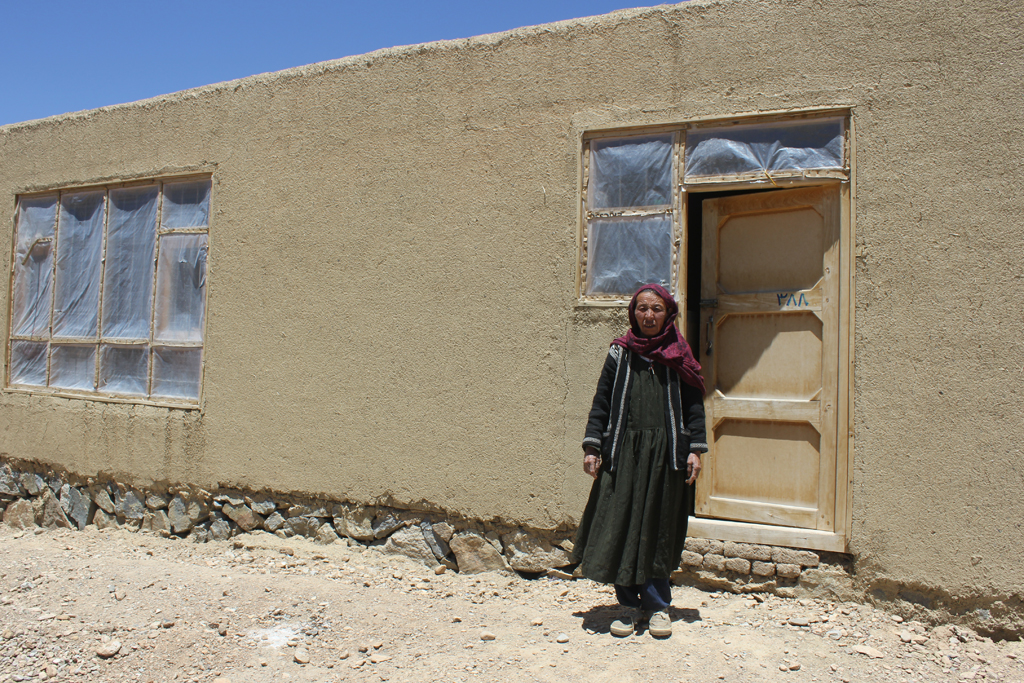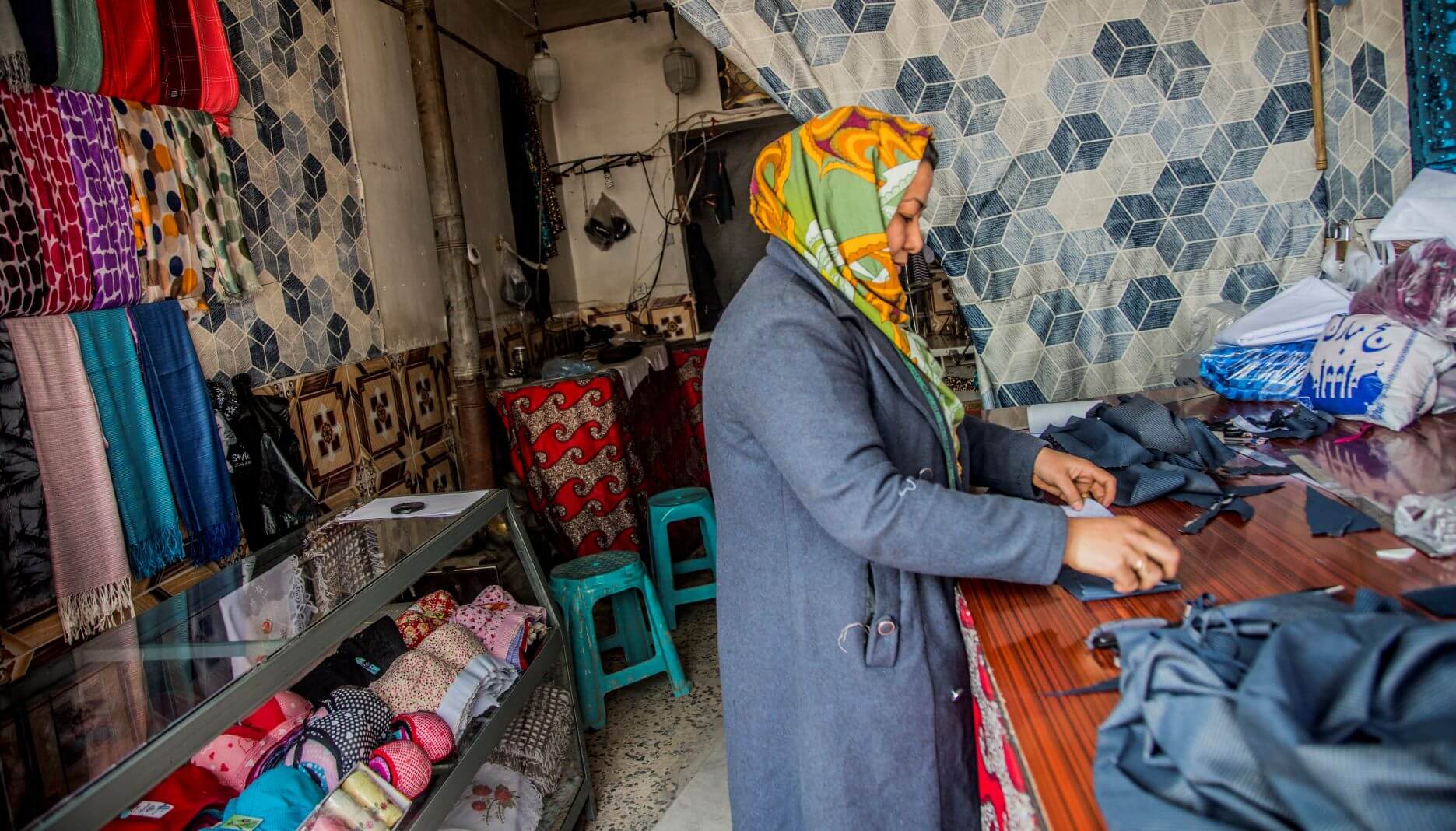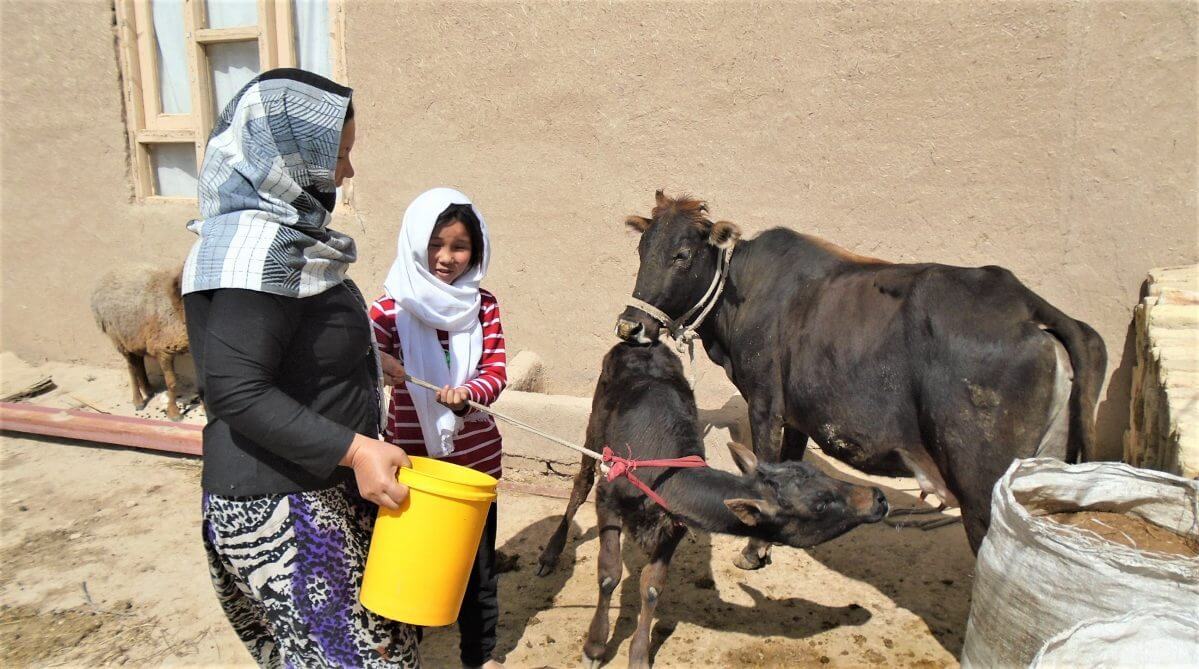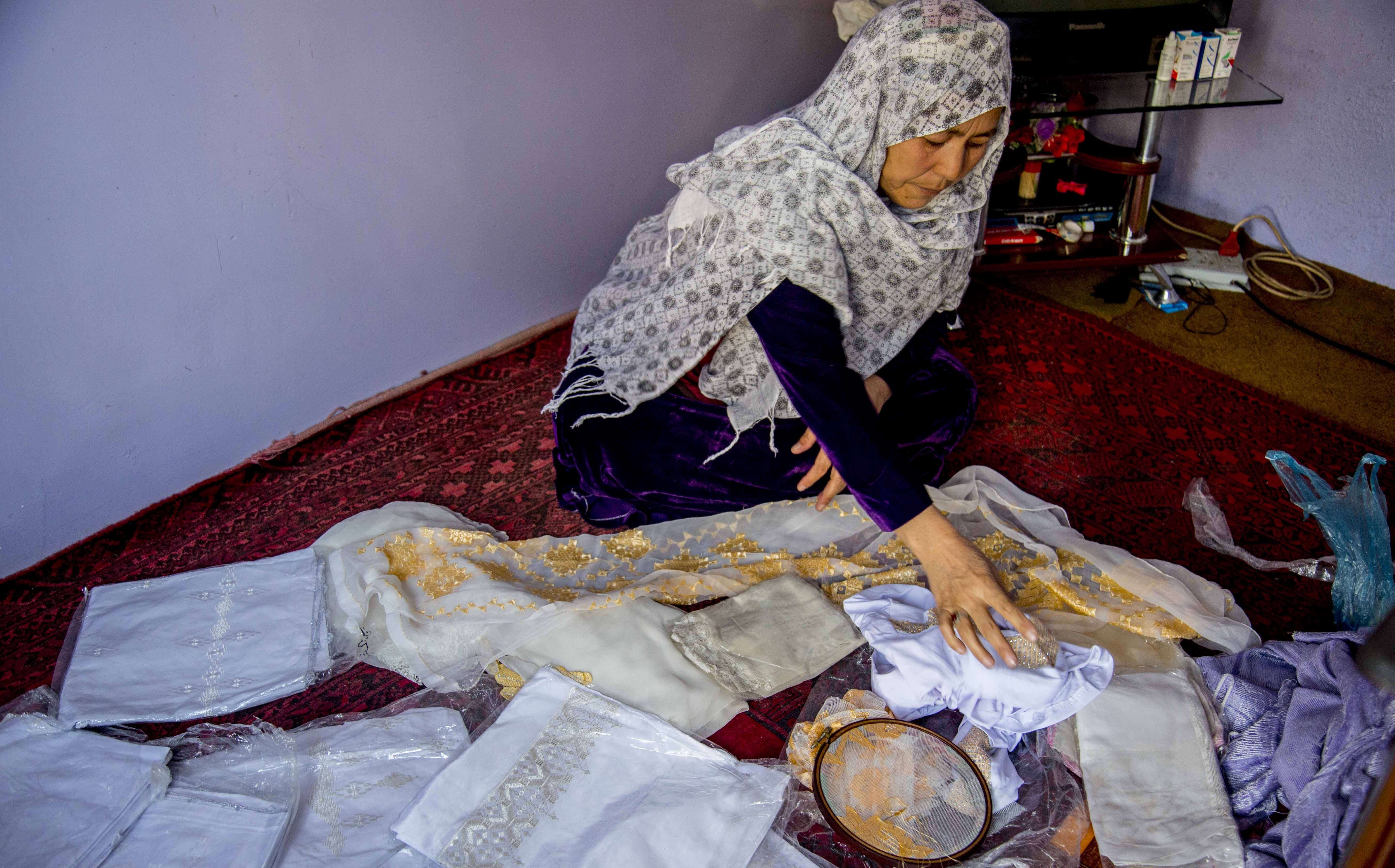THE STORY OF NAJIBA
By Matin Ezidyar
MISFA Staff
It was not so long ago when Najiba, her husband, who is paralyzed on one leg, and her seven children were scraping by every day.
“We’ve had some really dark days,” recalls Najiba. “I can still hear my children crying, begging for a piece of bread.”
Back then, the breadwinner had no regular source of income. On a lucky day, seldom to come by, Najiba would do work for a family and get paid AFN 100 (US$ 2). Trying to stretch this to feed a family of nine for days was not easy.
Nowadays, those hard times seem to be in the distant past; the daily sobs and teary faces long gone. In their place are giggles and faces beaming with smiles—even jokes.
“Come on in, we are wealthy now, you see.” says Najiba, chuckling as she opens the door to her mud house to welcome this guest on the day of the interview.
Najiba’s nine-member household is among the 400 ultra-poor families chosen from the Yakawlang and Punjab districts of Bamyan province.
For 36 months, the participating families received assets (livestock) of their choice, a monthly stipend, health allowance, free vaccinations for their animals, and consulting services on health, hygiene and social issues.
For Najiba, the TUP intervention, at a time when her family was in such misery, was the answer to her desperate prayers.
“TUP has not helped me, it has bestowed me a new life” says Najiba, whose family is from the Qala-e- Shatoghan village of the Yakawlang district.
Shortly after Najiba completed her registration to be a TUP beneficiary 36 months ago, the overall health and wellbeing of her family started improving.
All her school-aged children were enrolled in the village
school. Her eldest daughters, Razia, 19 years old, and Marzia, 17, now attend a school especially established for students, who were unable to pursue education on time.
Her 13 year-old son, Naseer, has recovered from a serious illness, and the health condition of her husband, who is paralyzed on one leg, has also improved after receiving support from the TUP project.
Being in TUP also raised the income and economic status of her household.
The family has grown its assets to three cows, two sheep and a few hens.
In addition, Najiba has purchased a new carpet, a television with a dish antenna, a clock and a cell phone.
 |
More importantly, she is now able to provide her children sufficient food, clothing and school supplies.
The dairy products her livestock produce, besides being the main source of nutrition for Najiba’s family, earn her AFN 3,000-4,000 (around US$ 80) per month.
Najiba has also learned to recycle the waste of her livestock for her daily fuel use, and as reserve for the winter months. Before TUP, Najiba was always worried sick as the winter approaches. Without proper food and heating, the harsh winter weather in the mountains of Bamyan is life threatening, especially for children.
She has also earned the respect and trust of village shopkeepers and traders, who supply her with goods even if she doesn’t have cash on hand.
Her economic power has made her more self-confident and optimistic that Najiba enrolled in a literacy course.
Najiba’s village has also benefited from her earned confidence and social standing. For a long time, her community has had no access to drinking water and the village women and children had to walk miles with their pitchers to fetch drinking water for their households. Najiba’s efforts to advocate for her village with the relevant government agencies and organizations put an end to the village problem. Her community now has a public well and Najiba had a standard toilet built for her family.
 |
Once an isolated woman, Najiba is now addressed as “Khala Najiba” (Aunt Najiba) in her village, a sign of respect. She is always invited to weddings and village social ceremonies and nowadays, she can afford to attend and offer a gift. “They (villagers) are now in need of my support, but not too long ago, I was the one always needing their help,” says Najiba. Now, Najiba is self-sufficient and can run her life without support of the project.
When asked what would happen to her when she graduates from the project, Najiba’s face beams once again.
“I don’t worry anymore,” she says. “With every hardship, there is ease.”
Najiba has a reason not to worry. On top of all the positive things she has experienced from being a TUP participant, she also learned that hard work and perseverance pay off. And Najiba is not about to take her good fortunes for granted.
Since becoming a member of a community-led savings group under the auspices of the Afghanistan Rural Enterprise Development Program (AREDP), Najiba has managed to save AFN 3,600 (US$ 70).
For the first time in her life, she is at ease and ready to take on any future hardship.
